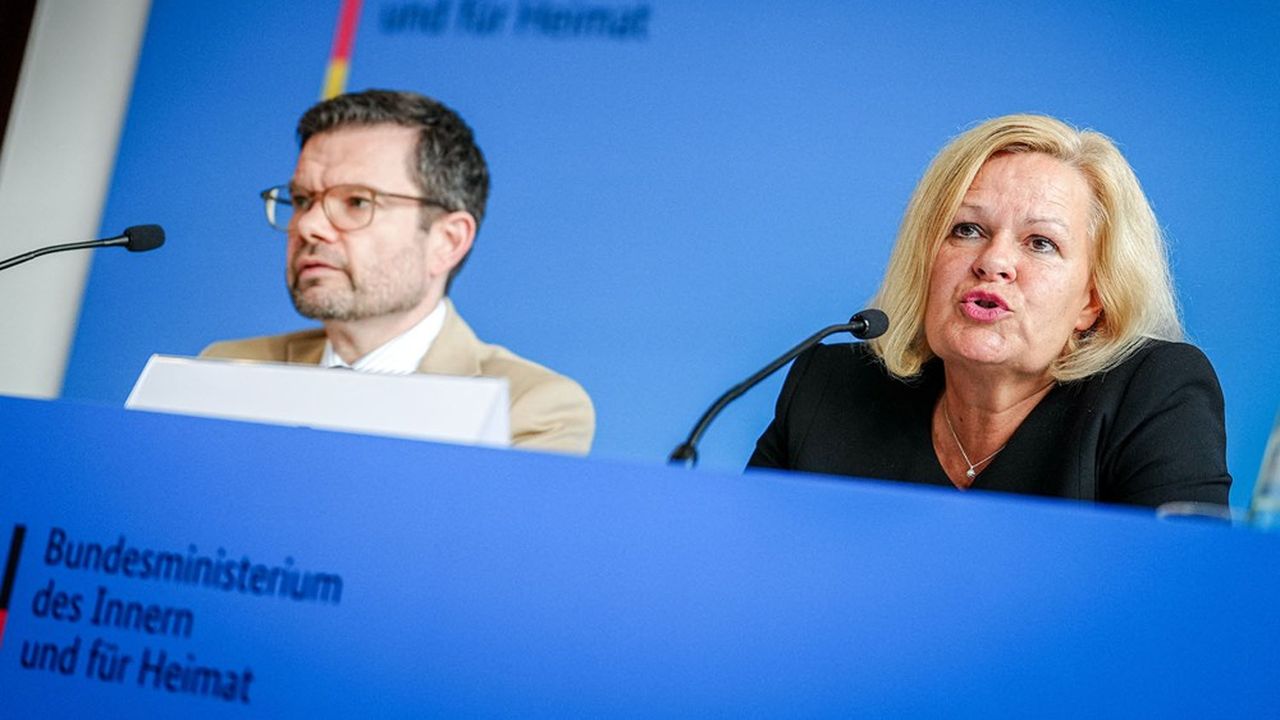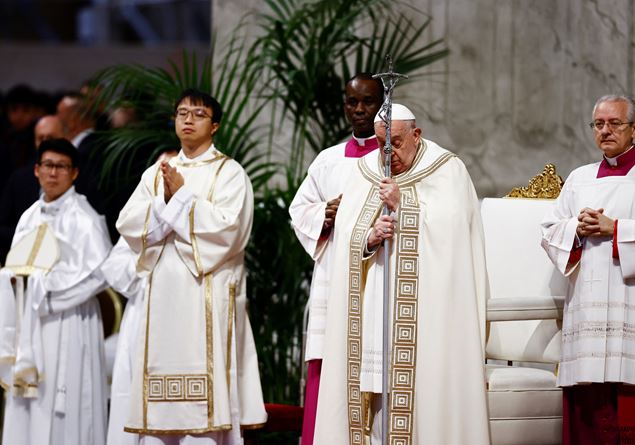
It was necessary to act quickly. Six days after the knife attack in Solingen (North Rhine-Westphalia) and while elections are being held this Sunday in Thuringia and Saxony, where the coalition parties will be crushed, the government announced this afternoon a significant strengthening of the laws on carrying weapons and asylum applications.
“The attack in Solingen has deeply shocked us and (…) the government is responding with tougher measures,” German Interior Minister Nancy Faeser said at a press conference.
No bladed weapons
The list of measures announced includes a ban on carrying bladed weapons at public demonstrations, on trains and buses, “a general ban on handling dangerous switchblades” and tougher gun control rules. However, the practical implementation of these measures will be complicated.
Federal police officers will now be allowed to carry tasers, and officials will participate in checks on gun permits to prevent extremists from obtaining them. Data from the Internet, such as photos of faces, may be used to search for suspects.
Removal of aid
Germany will also eliminate support for asylum seekers who entered another EU country before Germany. The grounds for excluding an asylum application or refugee status will be strengthened, particularly if serious crimes have been committed.
Berlin finally wants to demand a reform of the European asylum system and is looking for ways to be able to deport individuals to Afghanistan and Syria. “We are working to quickly achieve the deportation of dangerous criminals to Afghanistan and Syria,” explained Nancy Faeser. This package of measures must now be discussed with the states and the Christian Democratic opposition in the Bundestag.
A controversy
The knife attack in Solingen, which occurred on Friday evening and was claimed by the jihadist organisation Islamic State, left three dead and eight injured. The alleged perpetrator is a 26-year-old Syrian who arrived in Germany via Bulgaria and was supposed to have been expelled last year.
The situation has sparked intense controversy in Germany and put Chancellor Scholz’s coalition under pressure, with the far-right Alternative for Germany party receiving around 30 to 32 percent of voting intentions in Thuringia and Saxony.





